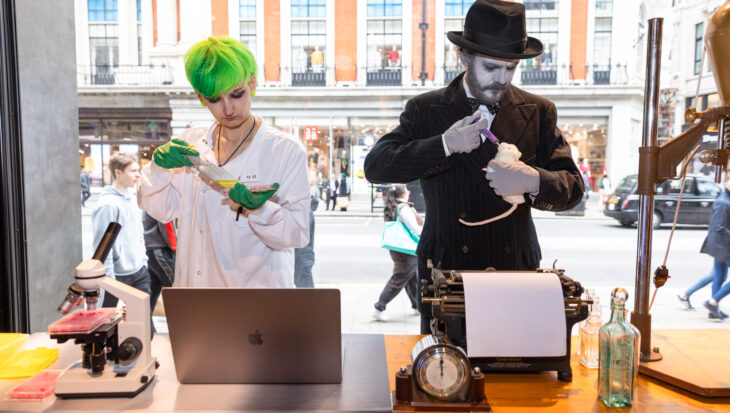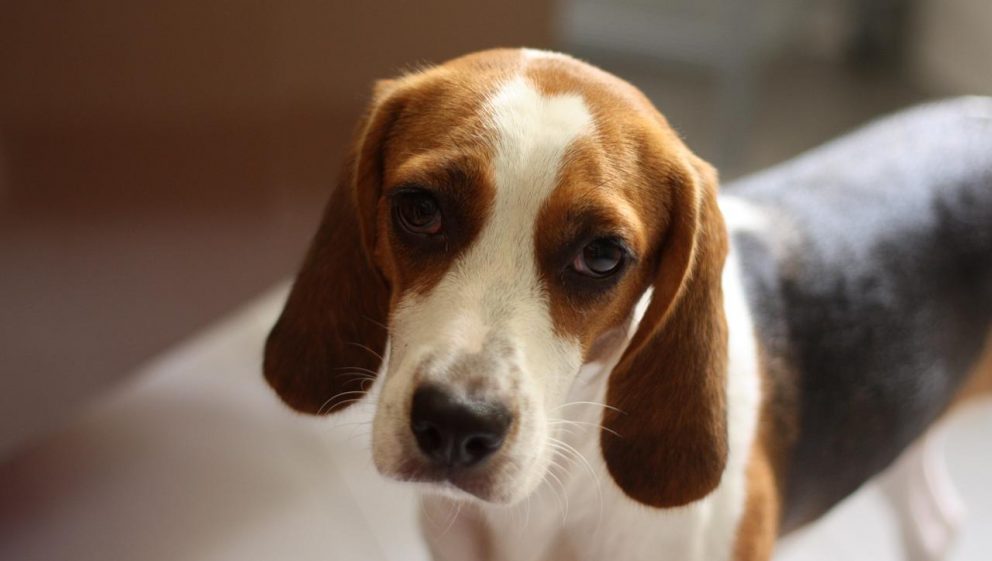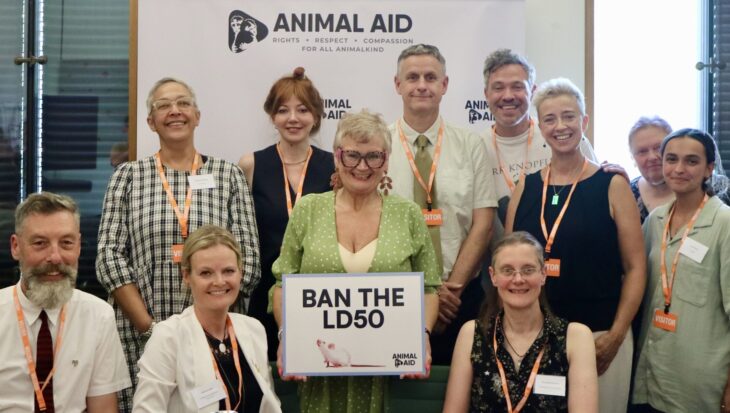In August 2014, the College launched RVC Business. This offers contract animal testing to a range of clients including drug companies that are developing human medicines.
The most recent figures that Animal Aid has been able to obtain show that the College used more than 9,000 animals for research in 2012.1 This included around 3,000 genetically modified (GM) mice, 618 ‘domestic fowl’, 38 GM pigs, 76 dogs (65 of whom were ‘client-owned’ animals), 45 horses, donkeys and cross-bred equines, 968 GM zebra-fish and six emus. An unknown proportion of the total research activity was connected to veterinary medicine – although much of this is commercially driven by the farming sector. Equally unclear is the degree to which various experiments may have caused harm, pain and suffering.
What is indisputable, however, is that college researchers are responsible for inflicting severe and deliberate harm on animals. This much is clear from some of the researchers’ own accounts in published scientific literature.
Recent examples where animals were used by RVC researchers to study human disease make dismal reading. They include:
- Six pregnant sheep were used to measure uterine blood flow. When halfway through their pregnancy, they were operated on to place a measuring device around each artery supplying the womb. Attached to these devices were cables that were tunnelled under the skin and emerged from the ewe’s side. Two further operations were performed to allow the collection of further measurements. At the end of their pregnancies the sheep were anaesthetised a third time, measurements were again taken and the sheep were killed. No mention is made of the fate of their lambs.
- Genetically modified mice (known as mdx) were used in muscular dystrophy experiments. For two weeks they received daily injections, before having their necks broken and muscle samples taken for analysis.
- Animal researchers are constantly seeking to produce ‘models’ of various human conditions, in the course of which the recognised symptoms are crudely induced through means such as poisoning, organ damage, blocking blood flow and genetic alteration. To develop an animal ‘model’ for studying the kind of nausea and vomiting experienced by some cancer patients on chemotherapy drugs, eight beagles were dosed with the anti-cancer drug cisplatin. This made them sick and nauseous.
- Animal suffering aside, the use of such models of human disease has a poor track record in the quest to develop treatments for people, not only because of the crude methods used to induce approximate symptoms of human medical conditions, but also because of fundamental physiological and genetic differences between species.
Says Animal Aid Director Andrew Tyler:
‘Establishments such as the Royal Veterinary College should be healing animals, not harming them. Their canine DMD experiments and their other invasive procedures on a range of species not only run counter to common humanity, but also are surely in breach of their professional duty as vets. Animal Aid is not alone in regarding the whole enterprise as disgusting and scarcely believable.’
The national group is urging its thousands of supporters across the country to register their protests with the RVC. And it will be encouraging other national and regional animal protection groups to mobilise their own supporters.
Editors’ Notes
- Information provided by the RVC in response to a Freedom of Information request dated 1st August 2013 https://www.whatdotheyknow.com/request/use_of_animals_for_research_5
- Read Animal Aid’s scientific overview of the muscular dystrophy dog experiments.
- To arrange an interview with Animal Aid Director Andrew Tyler, or Anti-Vivisection Campaign Manager, Jessamy Korotoga, please call 01732 364546.


